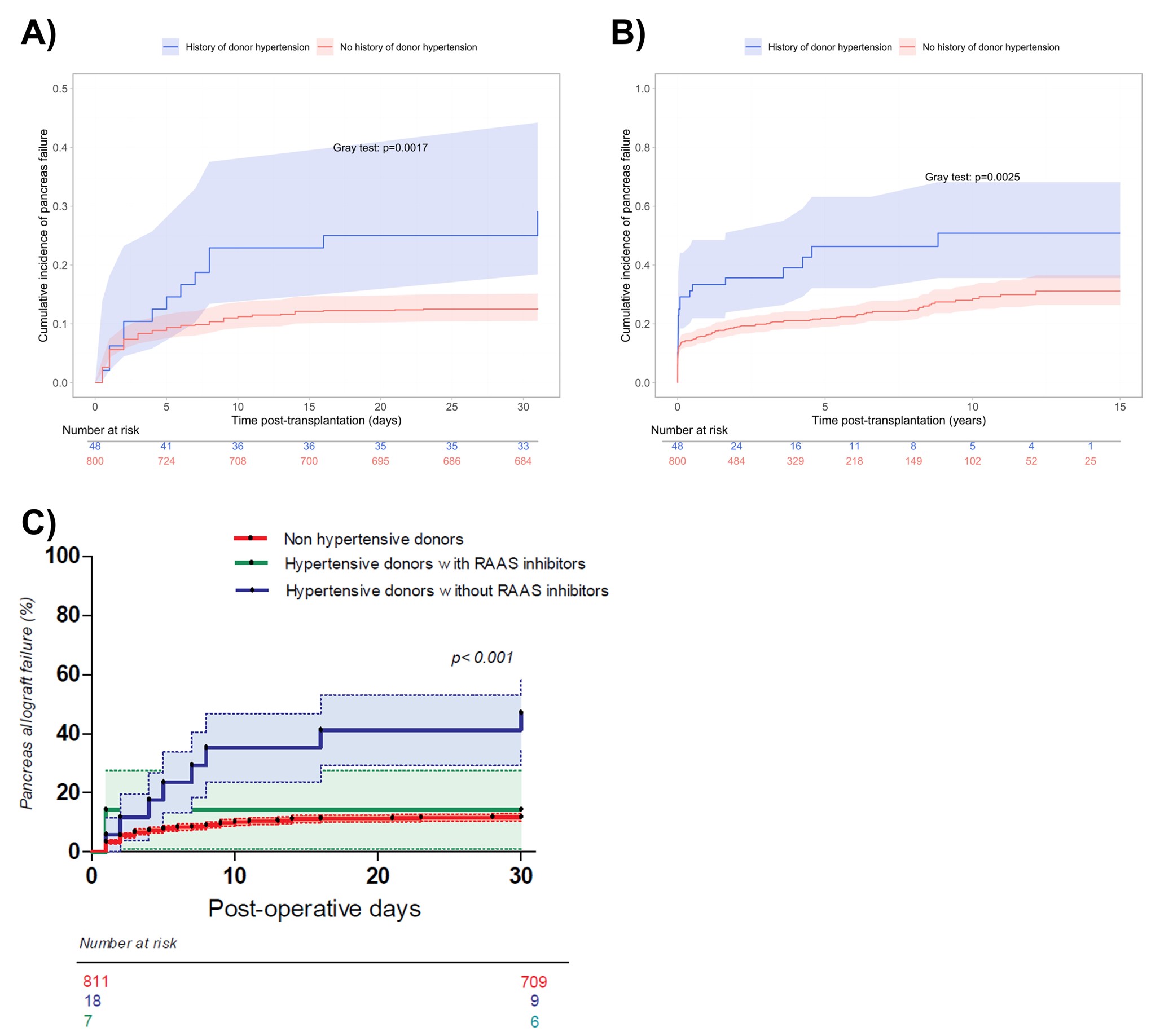A novel risk factor for immediate pancreas graft failure: hypertension in the donor
Christophe Masset1, Julien Branchereau1, Fanny Buron3, Georges Karam1, Maud Rabeyrin3, Karine Renaudin1, Florent Leborgne2, Lionel Badet3, Xavier Matillon3, Christophe Legendre4, Denis Glotz5, Corinne Antoine5, Magali Giral1, Jacques Dantal1, Diego Cantarovich1.
1Center for Research in Transplantation and Translational Immunology, UMR 1064, Institut de Transplantation Urologie Néphrologie , Nantes, France; 2INSERM UMR 1246 - SPHERE, Université de Nantes, Nantes, France; 3Service d'urologie chirurgie de la transplantation, Groupement Hospitalier Edouard Herriot , Lyon, France; 4Department of Nephrology and Kidney Transplantation, Necker Hospital, Assistance Publique-Hôpitaux de Paris, Paris, France; 5Institut de Recherche Saint Louis, INSERM U976, Assistance Publique-Hôpitaux de Paris, Paris, France
DIVAT Pancreas Consortium.
Background. About 10-20% of pancreas allografts are still lost in the early postoperative period despite the identification of numerous detrimental risk factors that correlate with graft thrombosis.
Methods. A multicenter cohort study including 899 pancreas transplant recipients between 2000 and 2018 was conducted. Early pancreas failure, long-term pancreas, kidney and patient survival were analyzed and adjusted to donor, recipient and perioperative variables using a multivariate cause-specific Cox model stratified to transplant centers.
Results. Pancreas from donors with history of hypertension (6.7%), as well as with high body mass index, were independently associated with an increased risk of pancreas failure within the first 30 post-operative days (respectively, HR= 2.57, 95% CI from 1.35 to 4.89 and HR= 1.11, 95% CI from 1.04 to 1.19). Interaction term between hypertension and BMI was negative. Donor hypertension also impacted long-term pancreas survival (HR= 1.88, 95% CI from 1.13 to 3.12). However, pancreas survival was no more impacted when calculated on post-operative day 31 and longer (HR= 1.22, 95% CI from 0.47 to 3.15). A significantly lower pancreas survival was observed in patients receiving a pancreas from a hypertensive donor without ACEi/ARB treatment compared to ACEi/ARB treatment. (50% vs 14%, p < 0.001). Pancreas survival was identical among non hypertensive donors and hypertensive ones under ACEi/ARB.
Conclusion. Donor hypertension, despite infrequent, was a significant and independent risk factor of pancreas failure. The well-known pathogenic role of renin-angiotensin-aldosterone system seems to be involved in the genesis of this immediate graft failure.
